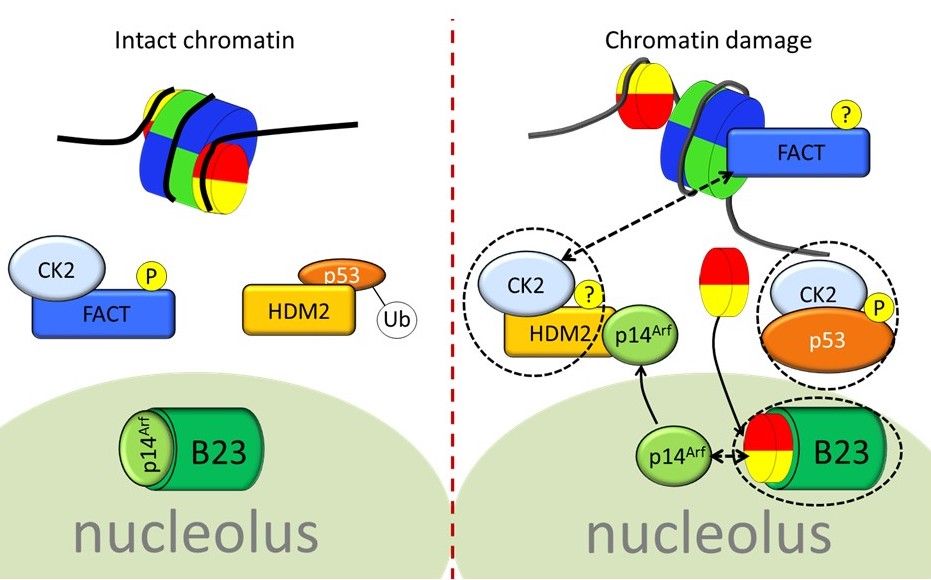Is p53 the guardian of the epigenome?
The tumor suppressor p53 has been recognized as the most studied gene, but it remains elusive how p53 prevents tumor growth.
The current model proposes that the major function of p53 is to control genomic stability: p53 is activated in response to different types of stress that threaten DNA integrity to eliminate damaged cells.
Recent studies revealed gaps in this model: inactivation of the p53 response to acute DNA damage, including transactivation, growth arrest, apoptosis, or senescence in mice did not recapitulate the p53-null cancer-prone phenotype.
In parallel, new data showed that the absence of p53 causes heterochromatin desilencing and facilitates the induction of pluripotency. These findings led to the concept that p53 may also be viewed as the guardian of the epigenome.
Epigenetic transitions (e.g., epithelial/mesenchymal, stem/non-stem), critical for tumor transformation and progression, require certain chromatin destabilization.
Thus, if the loss of p53 makes cells epigenetically flexible, then p53 tumor suppression may be mediated by prohibition of epigenetic transitions via enforcing of chromatin stability.
However, the mechanism by which p53 controls epigenetic integrity and chromatin stability is unknown.
Contact the Gurova Lab
Email: Katerina.Gurova@RoswellPark.org
Phone: 716-845-4760
Office location: Center for Genetics & Pharmacology (CGP) L3-301A
Lab Location: Center for Genetics & Pharmacology (CGP) L3-121 & 122
Department of Cell Stress Biology
Roswell Park Comprehensive Cancer Center
Elm and Carlton Streets
Buffalo, NY 14263

